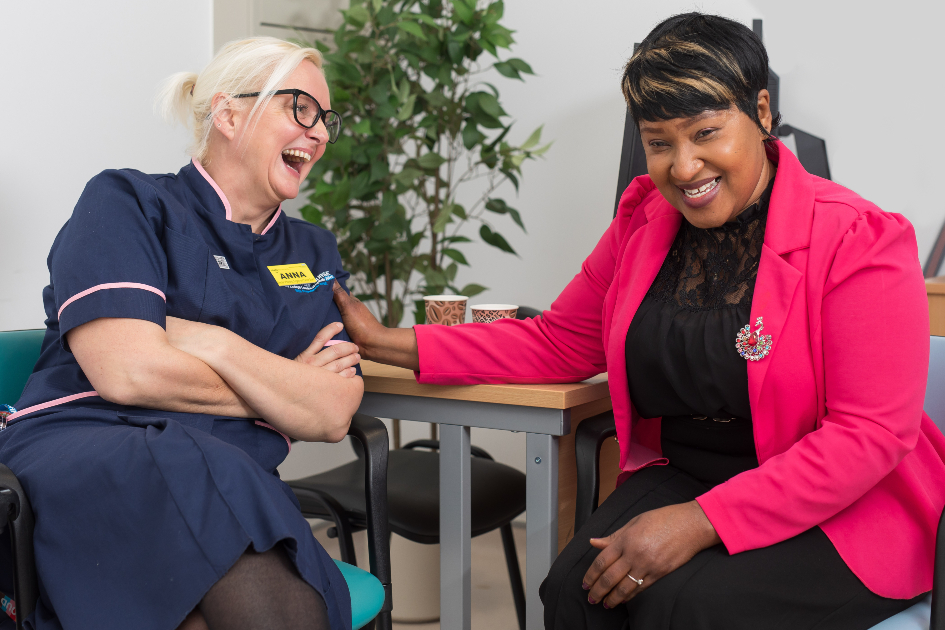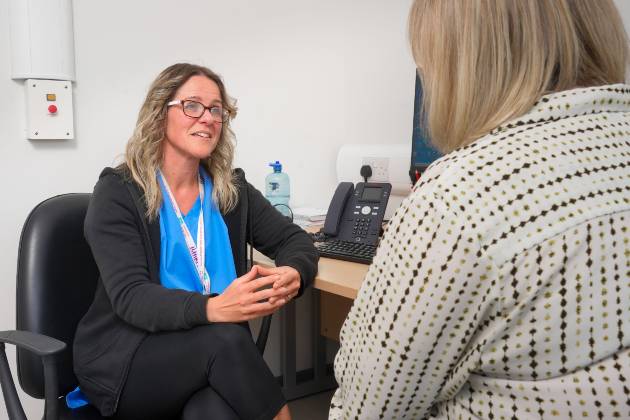RCN learning rep Fraser Smith is helping members working in care homes manage experiences of trauma throughout the pandemic
A year on since UK care homes first locked down due to COVID-19, Caring Homes regulatory compliance training manager and RCN learning rep Fraser decided to do something to offer extra support to members who were feeling the emotional impact of working during the pandemic.
“Working in care homes has been very difficult,” says Fraser, who is the training lead for all 70 Caring Homes locations across the UK. “Many colleagues were off sick when we first went into lockdown.
“We had to try and put in support for them, so it has had an impact on everyone. Many members of staff, from cleaners, receptionists and nursing staff, have struggled at some point over the past year.”
Fraser says that for care home staff, those they care for become like family members and many residents have lived in the homes for several years.
It has had an impact on everyone
“Staff do get close to residents,” says Fraser. “During lockdown, some of the homes had a number of deaths and in many homes, staff had to cover for colleagues that were shielding.”
Many employees were also isolating from their own families during the height of the pandemic, often working longer hours covering for colleagues or just not wanting to leave a resident who was unwell.
Fraser says: “Speaking to various care home managers about the impact of COVID-19 on staff, I wanted to look at how we could offer support in managing symptoms of trauma on top of the resources and counselling service already available through my employer.”
Raising awareness
In his role as an RCN learning rep, Fraser has regular catch-ups with RCN national officer Irene Murray. Fraser says: “I speak to Irene and other learning reps about how we’re coping. It’s an opportunity to get some extra support and share ideas for helping staff with training needs.
“I suggested to Irene that we’d like to do a workshop on trauma, and she put me in touch with the RCN Counselling Service.”
Fraser worked with his own organisation and the RCN to arrange a short online webinar around the theme of trauma, including looking at reactions to trauma and the difference between experiencing symptoms of trauma and a diagnosis of PTSD (post-traumatic stress disorder).
“We wanted to raise awareness about the different things staff might be experiencing and the support available,” says Fraser.
It was great to be able to work with the RCN Counselling Service
Fraser organised posters to be sent to all the homes, advertised the hour-long session on staff noticeboards and the presentation was shared with all employees across Caring Homes, not just RCN members.
“Many colleagues have told me the session was helpful. It was great to be able to work with the RCN Counselling Service – I would not have been able to do it alone.
“Now I feel that we have that connection to do more collaborative work in the future,” adds Fraser.
It’s not a sign of weakness to struggle with traumatic experiences
Getting support
RCN counselling clinical and operational lead Tanja Koch says: “It was great working on something preventative with Fraser. We want members to know that healing from trauma is a natural process and it takes time. It’s not a sign of weakness to struggle with traumatic experiences – it’s a normal reaction to an abnormal situation.
“We’ve recently expanded the RCN’s counselling offer to include trauma-focused therapy, funded by the COVID-19 Healthcare Support Appeal until January 2022.
“If members have experienced a traumatic event or feel that trauma-focused therapy might help them, they can contact the RCN Counselling Service to discuss what support is on offer.”
Tanja adds: “It’s important to remember that most people don’t develop PTSD after a traumatic event and some of the signs and symptoms of PTSD can also be diagnosed as stress, depression and anxiety.
“PTSD is a diagnostic term used if trauma symptoms haven’t subsided over time and cause considerable distress and issues in someone’s life. Only a qualified professional can diagnose this.
“If after a month someone’s trauma symptoms haven’t decreased or have become worse, they should seek support from their GP.”
RCN reps can play an important role in signposting members to the RCN Counselling Service and raising awareness about our new offer of trauma-focused therapy for members.
What is trauma?
People can experience psychological trauma following an event that is unexpected, outside their usual range of human experience, or involves some form of loss, injury or threat of injury/death (whether actual or perceived).
Experiencing trauma can sometimes result in emotional, physical and behavioural symptoms, such as feeling overwhelmed or experiencing increased anxiety and stress.
Advice for coping with trauma
- Acknowledge what you have been through.
- Speak to someone you trust, such as a family member, friend or your line manager and if you need to, seek support from your GP or the RCN Counselling Service.
- Be gentle and kind to yourself.
- Increase your level of self-care – start with the basics like nutrition, sleep, rest, exercise.
- Try to keep to a routine.
- Do things you enjoy, such as listening to music or cooking.
- Try to limit your exposure to things and people that cause you more stress and anxiety.
Read more information and advice on mental health and wellbeing during the pandemic
Signs that may indicate PTSD can include:
- symptoms of trauma are not subsiding, are persistent or increasing
- flashbacks, insomnia, nightmares, persistent physical symptoms (sweating, feeling sick and shaking)
- additional issues like depression, addiction, obsessive behaviours, breakdown of relationships, numbing and avoidance behaviours, inability to work or function
- the person’s view of the world has changed – it’s no longer a safe or happy place and has become threatening.
More information
Caring Homes provides residential, nursing, palliative and dementia care and remains family run having celebrated 25 years in the sector in 2019. Caring Homes employs approximately 4,300 staff across its portfolio of homes and cares for around 3,800 older people with residential, nursing or dementia care needs. Visit the Caring Homes website.
Picture of Fraser Smith by Greg Macvean








